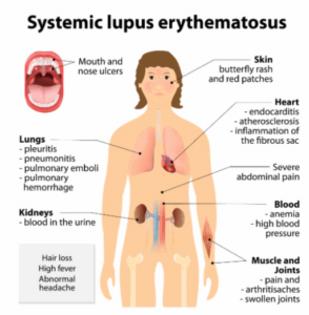Medical Marijuana And Lupus
Published in Cannabis Daily
Over 1.5 million suffer from for the disease. Research suggestions medical marijuana can help with lupus.
Over 1.5 million people in the US and Canada have the chronic autoimmune disease lupus. it can trigger inflammation and pain throughout the body, leading to fatigue, joint pain, skin rashes, and organ complications. With limited treatments available and no known cure, many patients turn to complementary therapies for relief. So what about medical mairijuana and Lupus? Recent studies suggest cannabis may offer meaningful benefits for lupus sufferers, including pain reduction, improved sleep, and decreased inflammation. One of the primary appeals of medical marijuana is its anti-inflammatory and analgesic properties. Cannabinoids such as tetrahydrocannabinol (THC) and cannabidiol (CBD) interact with the body’s endocannabinoid system, which plays a role in regulating immune responses. In lupus—where the immune system mistakenly attacks healthy tissue—this modulation may help reduce flare-ups and symptom severity.
A study published in Frontiers in Pharmacology examined the effects of cannabinoids on autoimmune and inflammatory conditions. Researchers found cannabinoids can inhibit the production of inflammatory cytokines and promote regulatory T cells, which are crucial for maintaining immune balance. This immunosuppressive potential is particularly relevant for lupus management.
Pain management is another critical area where cannabis shines. A study in the Journal of Pain Research highlighted how medical cannabis use led to significant pain relief in patients with chronic pain, including those with autoimmune diseases. Patients also reported reduced reliance on opioid medications—a vital benefit given the risks of opioid dependency. Furthermore, many lupus patients report sleep disturbances and mood issues. CBD, a non-psychoactive compound in cannabis, has shown promise in improving sleep quality and reducing anxiety. A review published in Current Neuropharmacology concluded CBD may be beneficial in treating insomnia, pain-related sleep issues, and mood instability. While more targeted research is needed, early evidence supports the safe and effective use of medical marijuana as a complementary treatment for lupus. Patients should consult healthcare providers to explore whether cannabis could fit into their broader treatment strategy, taking into account legal access and individual health conditions. You should always consult your healthcare professional before adding in additional treatments to your regime.
The Fresh Toast is a daily lifestyle platform with a side of cannabis. For more information, visit www.thefreshtoast.com.
























Comments